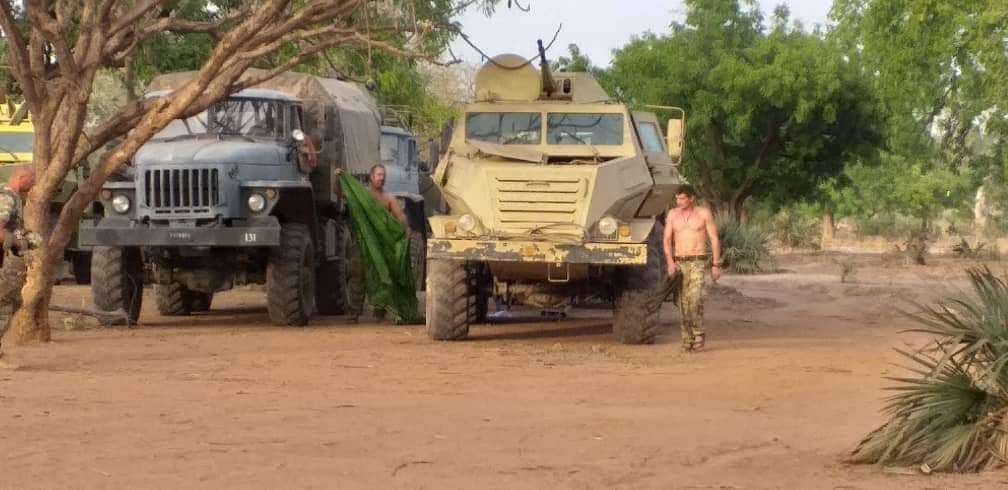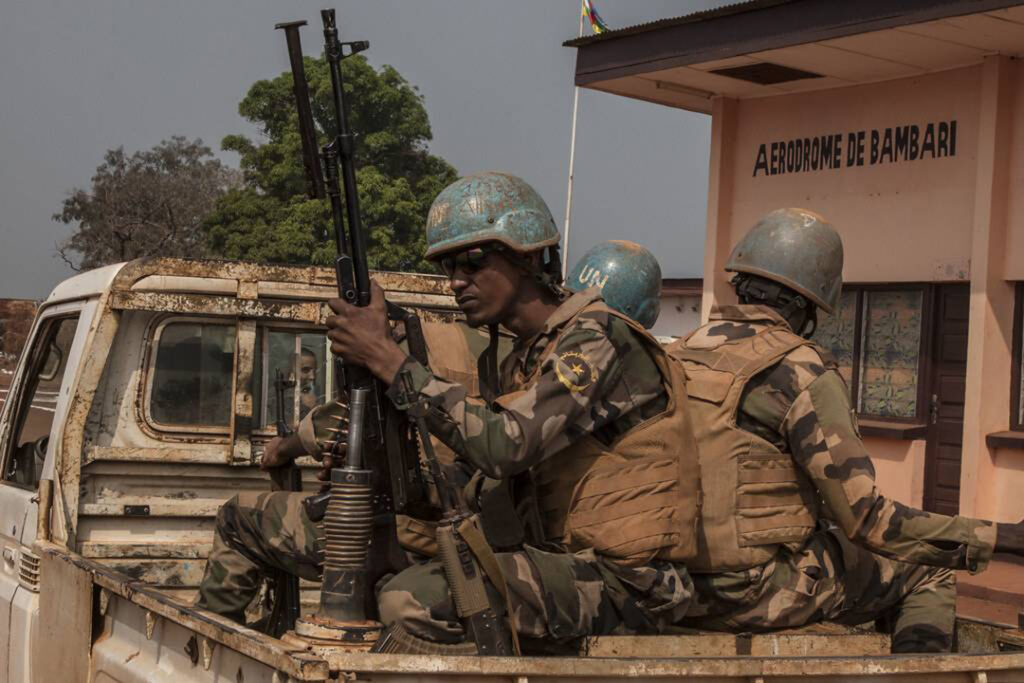ADF STAFF
Three years after Russia’s Wagner Group began arriving in the Central African Republic, international observers have raised concerns about executions, torture and other actions by the group. They also are questioning its interactions with United Nations peacekeepers.
Wagner Group contractors now are part of the fighting between the FACA, the national armed forces, and the rebel groups known as the Coalition of Patriots for Change (CPC), which earlier this year controlled as much as 80% of the country.
Fighting intensified after the December 27, 2020, presidential election that saw President Faustin-Archange Touadéra win a second five-year term. Touadéra employs a member of the Wagner Group as his national security advisor. Other Wagner contractors serve as his security detail.

Government forces have become more aggressive after beating back an assault on the capital, Bangui, in January 2021. The conflict with CPC has left 2.8 million of the CAR’s 5 million people in need of humanitarian aid as many flee fighting.
Experts with the United Nations Working Group on the use of mercenaries say they have received reports of summary executions, disappearances, attacks on humanitarian organizations and other violence perpetrated by Wagner Group and other contractors supporting FACA, and, in some cases, by members of United Nations peacekeepers.
In their report, the working group experts said they were deeply disturbed by the proximity of Wagner Group bases to peacekeeping bases, and reports of Russian advisors or trainers visiting U.N. bases or being evacuated from battle by U.N. troops.
The Wagner Group brought heavy vehicles and other equipment into the country from South Sudan.
“This blurring of the lines between civil, military and peacekeeping operations during the hostilities creates confusion about the legitimate targets and increases the risks for widespread human rights and humanitarian law abuses,” the report said.
MINUSCA, the United Nations Multidimensional Integrated Stabilization Mission in the Central African Republic, has maintained up to 13,000 peacekeepers in the CAR since 2014. Since the CPC began its assault on the government, MINUSCA has supported government troops’ missions against the coalition, putting it on the same side of the conflict with the Wagner Group.
Aboubacar Siddick Ali, a spokesman for the CPC, has accused MINUSCA of fighting alongside Russian mercenaries — an accusation MINUSCA denies.
MINUSCA spokesman Vladimir Monteiro has said interactions between the two groups consist simply of information exchanges to avoid confusion on the battlefield.
“These forces happen to be on the ground, and we are also on the ground,” Monteiro told Turkey’s Anadolu Agency. “It is not a joint operation.”
Experts with the Working Group on the use of mercenaries said the government needs to clarify the roles of international groups operating in the CAR and demand that the groups be accountable when they violate international law.
“The close connections between the various actors, along with the lack of transparency, further jeopardizes chances of any impartial investigation and ensuring accountability for those abuses and violations,” the Working Group reported.

